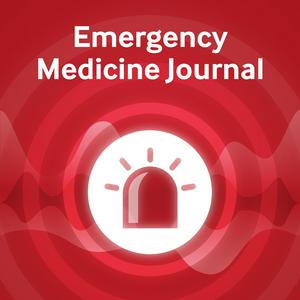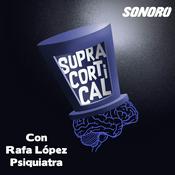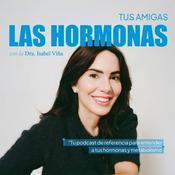124 episodios
Facial scarring, paracetamol overdose, and same day treatment: January 2026 Primary Survey
19/12/2025 | 28 minIt's the first issue of 2026, and the first with new editor-in-chief Prof. Richard Body heading the journal. He is joined by senior associate editor Dr. Sarah Edwards, as they take a look at some highlights of the issue.
First in the line-up is a paper looking at how "Same day emergency care" units, or SDECs, have come to mean quite different things across the UK. In some cases, the rule-out processing of SDECs harks back to "What the ED used to do" in past years. The next paper is an examination of the treatment methods for paracetamol overdose, specifically the SNAP protocol for accelerated infusion of N-acetylcysteine. This new analysis considers the likelihood of anaphylactoid reactions across age groups. Third to be discussed is a retrospective study on the relationship between length of stay and morbidity and mortality in older patients. This large study from Singapore suggests a systemic change in approach is needed for handling triaging and discharge of this patient group. The final topic is facial lacerations, with a Best Evidence Topic report addressing the use of topical silicone gel. Many patients are rightly concerned about scarring on such a personal part of the body as their face, and the report finds some encouraging support for use of the gel to improve cosmetic healing.
Read the highlights: January 2026 primary survey
How is same day emergency care (SDEC) being implemented across England?
Scottish and Newcastle Antiemetic Protocol (SNAP) 12-hour acetylcysteine regimen for paracetamol overdose reduces anaphylactoid reactions without compromising hepatic protection in all age groups: a secondary analysis
Association between age and length of stay in the emergency department in a tertiary care hospital: a retrospective observational study
Should we be advising patients to use topical silicone gel for wound care following facial laceration suturing in the emergency department ?
The EMJ podcast is hosted by:
Prof. Richard Body, EMJ Editor-in-Chief, University of Manchester, UK (@richardbody)
Dr. Sarah Edwards, EMJ Senior Associate Editor and Social Media Editor, Royal Derby Hospital, UK (@drsarahedwards)
You can subscribe to the EMJ podcast on all podcast platforms to get the latest podcast every month. If you enjoy our podcast, please consider leaving us a review or a comment on the EMJ Podcast Apple (https://apple.co/4bfcMU0) or Spotify (https://spoti.fi/3ufutSL) page.- One thing you'll never hear in the emergency department is the sound of silence. And if the hubbub should start to lower, woe betide the ED staffer who dares to say, "it's looking quiet tonight." But should we really be so concerned? A paper in this episode's roundup takes a look at superstition versus science. Staffing concerns is another ever-present topic when it comes to the ED, and Rick and Sarah share an insightful evaluation of the time saving offered by voice recognizing "AI scribes". The numbers show some serious benefits, but do they really work? The same question can be asked of the X-ray assessment tools that are rolling out in emergency departments across the world. Rick and Sarah take a look at a study detailing their affect on correct diagnoses. There's also also a case-based paper discussing practices for evaluating IUD-related issues using ultrasound.
This is the final issue with Prof. Ellen Weber serving as the Editor-in-Chief of the Emergency Medicine Journal. Ellen's tenure has been a long and successful one, and everyone in the podcast team wishes her the best in retirement from the post.
Read the highlights: December 2025 primary survey
Passing the torch
SONO case series: transabdominal pelvic point-of-care ultrasound of intrauterine devices in the emergency department
Impact of ‘the Q word’ on hospital speciality activity levels: a narrative systematic review
Observational service evaluation of voice recognition technology in the emergency department: association with electronic note-writing efficiency
Evaluating the impact of AI assistance on decision-making in emergency doctors interpreting chest X-rays: a multi-reader multi-case study
The EMJ podcast is hosted by:
Prof. Richard Body, EMJ Deputy Editor, University of Manchester, UK (@richardbody)
Dr. Sarah Edwards, EMJ Senior Associate Editor and Social Media Editor, Royal Derby Hospital, UK (@drsarahedwards)
You can subscribe to the EMJ podcast on all podcast platforms to get the latest podcast every month. If you enjoy our podcast, please consider leaving us a review or a comment on the EMJ Podcast Apple (https://apple.co/4bfcMU0) or Spotify (https://spoti.fi/3ufutSL) page. The riddle of Resusci Annie, explaining functional neurology, and flying doctors: November 2025 Primary Survey
05/11/2025 | 30 minDespite what the CPR doll might suggest, cardiac arrest patients are not always white, lean and male. So why is that the case for resuscitation training? The first paper in this episode addresses this lack of representation and the impact it has on resus performance. The next paper is a practice review of functional neurological disorder (FND), highlighting the poor diagnosis rate and history keeping for this condition, as well as offering ways to communicate with patients. There's also a paper on the dilemma of febrile infants with concurrent viral and bacterial infections, and another on aeromedical service sedation protocols in the Australian Outback.
Read the highlights: November 2025 primary survey
We need to talk about Annie
Diversity of CPR manikins for basic life support education: use of manikin sex, race and body shape — a scoping review
Recognising and managing functional neurological disorder in the acute healthcare setting
Prevalence of serious bacterial infections and performance of inflammatory markers in febrile infants with and without proven viral illness
Risk of complications using a sedation protocol for aeromedical retrieval of acutely unwell mental health patients: a retrospective cohort study in Outback Australia
The EMJ podcast is hosted by:
Prof. Richard Body, EMJ Deputy Editor, University of Manchester, UK (@richardbody)
Dr. Sarah Edwards, EMJ Senior Associate Editor and Social Media Editor, Royal Derby Hospital, UK (@drsarahedwards)
You can subscribe to the EMJ podcast on all podcast platforms to get the latest podcast every month. If you enjoy our podcast, please consider leaving us a review or a comment on the EMJ Podcast Apple (https://apple.co/4bfcMU0) or Spotify (https://spoti.fi/3ufutSL) page.“Whose turn is it?” - Moral injury and predicting wait times: October 2025 Primary Survey
07/10/2025 | 25 minThe atmosphere of the emergency department can be a hard thing to put into words, with intense emotions washing over patients and staff alike. This month we feature a poem, powerfully illustrating the drama and stress inside the ED bubble. One of the recurring sources of uncertainty for patients is the question, “How long until I’m seen, doc?”, and there’s a paper following up on that issue with a personalised approach. A framework that has been employed by NHS England, aimed at dealing with the problem, is Same Day Emergency Care (SDEC). The next paper finds there is a limited evidence on the impact of SDECs, as well as confusion around their definition. Another paper on the subject of patient flow shows that while digital solutions are promising, you can’t replace a streaming nurse for critical decisions. To finish the episode is a 10-year retrospective review on the use of blood in paediatric trauma, drawing on the data of the Trauma Audit Research Network.
Read the highlights: October 2025 primary survey
Whose turn is it?
Poetry: the art of expression
“How long until I am seen, doc?” Modelling paediatric emergency department waiting times to make personalised predictions
Impact of same day emergency care services on urgent and emergency care delivery outcomes: a systematic review
Blood product use in paediatric trauma: lessons from the TARN data
The EMJ podcast is hosted by:
Prof. Richard Body, EMJ Deputy Editor, University of Manchester, UK (@richardbody)
Dr. Sarah Edwards, EMJ Senior Associate Editor and Social Media Editor, Royal Derby Hospital, UK (@drsarahedwards)
You can subscribe to the EMJ podcast on all podcast platforms to get the latest podcast every month. If you enjoy our podcast, please consider leaving us a review or a comment on the EMJ Podcast Apple (https://apple.co/4bfcMU0) or Spotify (https://spoti.fi/3ufutSL) page.Code status conversations, and attitudes towards asthma: September 2025 Primary Survey
04/9/2025 | 38 min"What is your understanding of your father's illness?" This is the kind of question that may be posed by emergency clinicians in the context of end-of-life care. But as a survey of Thai and American emergency departments finds, approaches to these conversations can be quite different globally. This episode also features another angle on end-of-life care, highlighting the persistent impact that deprivation has when it comes to likelihood of hospital conveyance. On a different subject, there is a qualitative study of the management of acute asthma presentations, seeking to find any marginal gains that may present a chance for optimisation. The fourth and final paper is about acute coronary syndromes in the emergency department, presenting some surprising statistics on length of stay.
Read the highlights: September 2025 primary survey
Deprivation is associated with hospital conveyance among patients who are terminally ill
Are acute asthma presentations to the emergency department an opportunity for optimising long-term management? A qualitative study on beliefs and behaviours of healthcare professionals
Comparing approaches to code status conversations between Thai and American emergency clinicians: a survey study
Acute coronary syndrome rule-out strategies in the emergency department: an observational evaluation of clinical effectiveness and current UK practice
The EMJ podcast is hosted by:
Prof. Richard Body, EMJ Deputy Editor, University of Manchester, UK (@richardbody)
Dr. Sarah Edwards, EMJ Senior Associate Editor and Social Media Editor, Royal Derby Hospital, UK (@drsarahedwards)
You can subscribe to the EMJ podcast on all podcast platforms to get the latest podcast every month. If you enjoy our podcast, please consider leaving us a review or a comment on the EMJ Podcast Apple (https://apple.co/4bfcMU0) or Spotify (https://spoti.fi/3ufutSL) page.
Más podcasts de Salud y forma física
Podcasts a la moda de Salud y forma física
Acerca de EMJ Podcast
The Emergency Medicine Journal (EMJ) podcast is your premier source for the latest insights and developments in pre-hospital, hospital emergency medicine and critical care. Join the EMJ journal’s Deputy Editor and Social Media Editor each month as they discuss key highlights from the latest issue.
EMJ - emj.bmj.com - is an international journal from the BMJ Group and the Royal College of Emergency Medicine (RCEM) covering developments and advances in emergency medicine and acute care.
Stay informed with expert discussions and cutting-edge information by subscribing or listening on your favourite podcast platform.
Podcast hosted by:
Dr. Richard Body, EMJ Deputy Editor, University of Manchester, UK
Dr. Sarah Edwards, EMJ Social Media Editor, Leicester Royal Infirmary, UK
Sitio web del podcastEscucha EMJ Podcast, La cuarta es la vencida y muchos más podcasts de todo el mundo con la aplicación de radio.net

Descarga la app gratuita: radio.net
- Añadir radios y podcasts a favoritos
- Transmisión por Wi-Fi y Bluetooth
- Carplay & Android Auto compatible
- Muchas otras funciones de la app
Descarga la app gratuita: radio.net
- Añadir radios y podcasts a favoritos
- Transmisión por Wi-Fi y Bluetooth
- Carplay & Android Auto compatible
- Muchas otras funciones de la app


EMJ Podcast
Escanea el código,
Descarga la app,
Escucha.
Descarga la app,
Escucha.






































